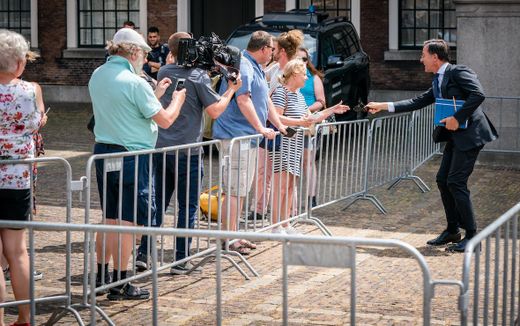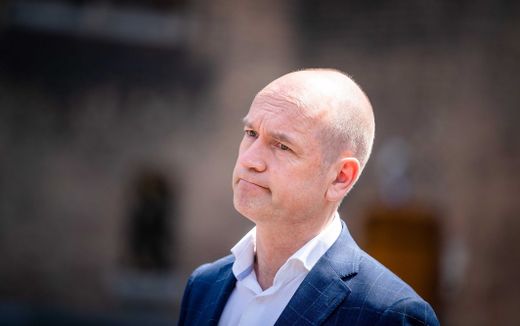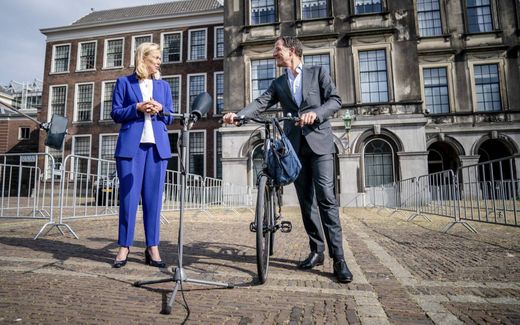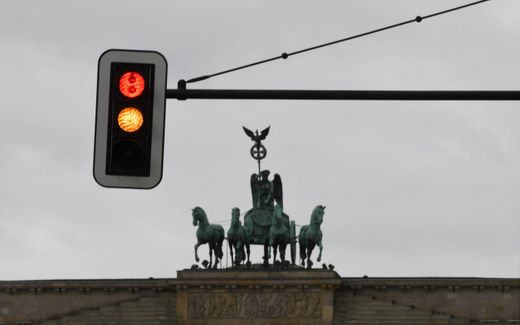New Dutch coalition leaves hot potatoes to Parliament
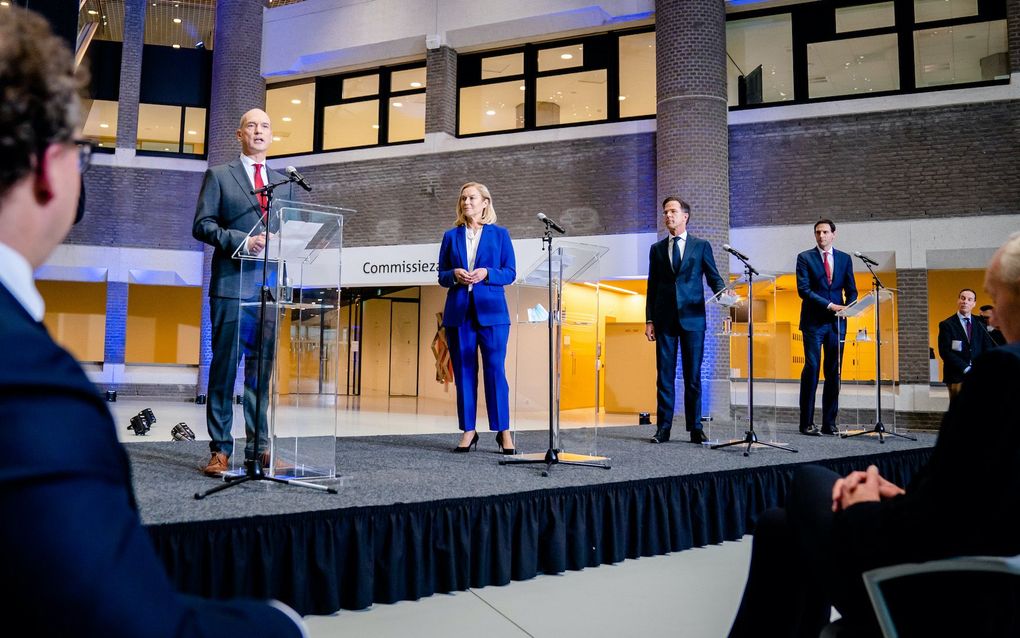
The party leaders of the new Dutch coalition present their plan. From left to right: Mr Segers, Mrs Kaag, Mr Rutte and Mr Hoekstra. Photo ANP, Bart Maat
Western Europe
Nine months. That is how long it took to bring this new child to the world: a program of 50 pages from a coalition of four parties. The coalition is a multicoloured team from two liberal and two Christian parties. The real sensitive points have been left to the Second Chamber.
It is more a forced marriage than a love story, some observers said on Wednesday. The “Rutte IV” coalition is the same as it was during “Rutte III”. In 2017, the same four parties came together since there was no other option to form a government.
That was the same this year. Directly after the elections on March 17th, it was clear that the parties were fed up with each other. Early April, the mistrust in the Prime Minister Mark Rutte (Liberal VVD) was so dominant that it seemed impossible to form a government again with Sigrid Kaag (Social Liberal D66) and Gert Jan Segers (Protestant ChristenUnie). The larger Christian Democratic CDA had lost so many votes in that election that it looked very unlikely that Wopke Hoekstra would stay in government with his party.
But above that, Mrs Kaag did not want to govern again with the two confessional parties. Especially the ChristenUnie has an outspoken pro-life character. According to D66, that would hinder the “progress” on medical-ethical topics.
Negotiations after 6 months
Until late September (more than 6 months after the elections), Mrs Kaag announced that she would no longer block the Christian parties. The only other option was to go with two centre-left parties, but both Rutte and Hoekstra blocked that option.
Because of all this political debate, it took half a year before they could start negotiating the policy plans in early October. That resulted in a record-long formation process.
And we are not there yet. We only have the program. The team of ministers has still to be formed. So, it will take at least 10 months after the elections before the baby is born. For that reason, several players around the formation have announced a “serious evaluation” of the process on Wednesday. The fact is that the Parliament started experimenting with a new style of forming governments in 2012.
Death on demand
Sigrid Kaag did not want to govern with the confessional parties. Her party is very much in favour of voluntary death on demand after an accomplished life. D66 has accepted that this will not become part of government policy for the second time.
Also, other sensitive ethical points have been left to Parliament. The Lower House (the Second Chamber) can table initiatives for legislation any time on its own. Sometimes, the coalition parties agree beforehand to block conflicting initiatives, but that is not done here.
Abortion reflection time
Another topic is the compulsory reflection time for abortion. According to the present law, between the decision to undergo a termination and the actual abortion must be five days. During these days, a woman can reflect whether she is sure about her decision and perhaps come to another conclusion.
It’s clear that the Second Chamber favours skipping this reflection time since this is seen as paternalistic. But the coalition has not made this a policy. That means that the reflection time will remain in the statute book or be dealt with by a parliamentary initiative.
The coalition plan promises good sexual education to reduce the number of unwanted pregnancies. For this, the government will make contraceptives free and accessible.
Embryonic research
The government will not enact legislation around ‘producing’ embryos for research instead of pregnancy. The agreement announces that the liberal parliamentary parties from D66 and VVD will come with initiatives for legislation.
Liberty for education
The same is done with education liberty. According to Article 23 of the Dutch constitution, people have the freedom to organise their own schools with public money. Public schools and special schools are treated as the same. That is the freedom that has led to many Christian schools. Over the past 100 years, there has always been debate about the boundaries of education freedom for those schools. Nowadays, secular parties and media watch closely whether LGBT kids feel safe at those schools.
For this reason, it was expected that the two liberal parties would try to win something for LGBT emancipation and announce a review of this well-known Article 23. But that is not the case.
Multiple parenthood
Another topic is multiple parenthood. In 2016, a particular state committee advised reviewing legislation to make multiple parenthood possible. In Germany, the Traffic Light coalition announced late November that they will be thinking about “social” parenthood along with biological parenthood. But the Dutch coalition program remains silent, even though it would fit in the progressive liberalism of D66.
On the other hand, the coalition has accepted to so-called “rainbow agreement” of the secular parties from 2017 and 2012. That plan promises more rights for LGBT people. By the way, multiple parenthood was mentioned in that agreement as well.
The new government wants to expand exit programs for sex workers. That is a topic that has been a priority for Segers’ ChristenUnie for ages already.
Winning back trust
It is clear that the real hot potatoes for these four parties have been left to the Parliament. The coalition plan starts by saying that the new government has to win back the trust in society.
The present caretaker government had to step down last January after it became clear that the state had been wrong around childcare benefits. Parents (many of them single mothers) had to pay back all the money after making small mistakes. This grew out to be a massive political scandal.
For this reason, the new government (of the same people from the same parties) has winning trust as the first priority. Directly after his stepping down in January, Mr Rutte promised a “new governing culture”. But it is still not clear what this means concretely.
Part of this process is that the childcare will get almost free since the government wants to fund this for up to 95 per cent.
For the rest, this coalition plans to spend much more money than any other government in the last decades. This is mainly because borrowing is cheap at the moment. Much of the money is meant for “corona reconstruction”. Another factor might be that four parties that do not trust each other tend to spend more money to buy off the pain.
Much of the money will be invested in topics like climate and building two nuclear power plants. Apart from that, the country has a shortage of 300,000 houses that cannot be built quickly because of nitrogen emissions. The nitrogen issue became a topic in 2019 after a court decided that the state had to enforce the rules for nitrogen emission.
New governing culture is difficult
The original plan was to stick the coalition agreement to key points. With 50 pages, it is not as long as earlier versions, but it is still very detailed. Obviously, this is necessary for parties that do not trust each other. But it is still an illustration that the promised “new governing culture” is much more complicated than thought.
Related Articles


